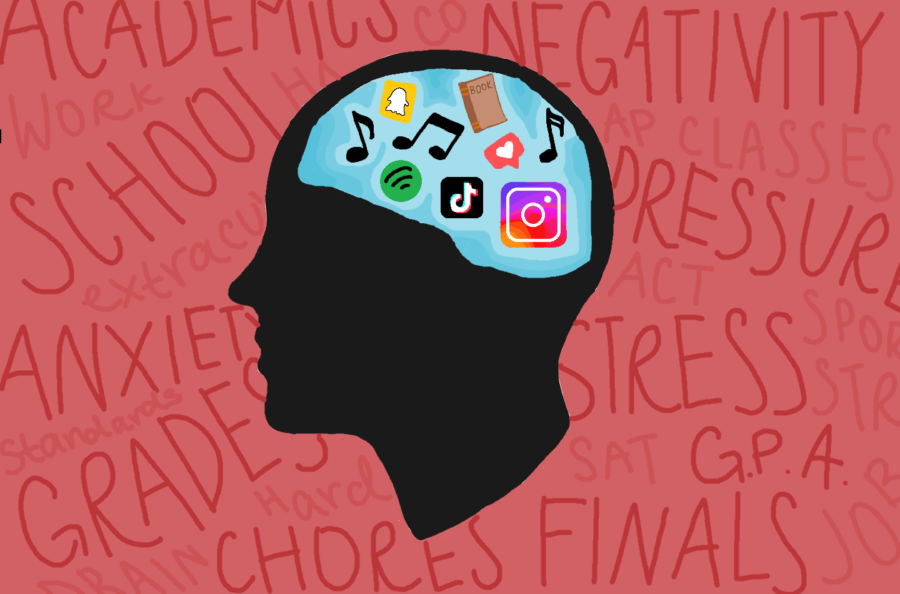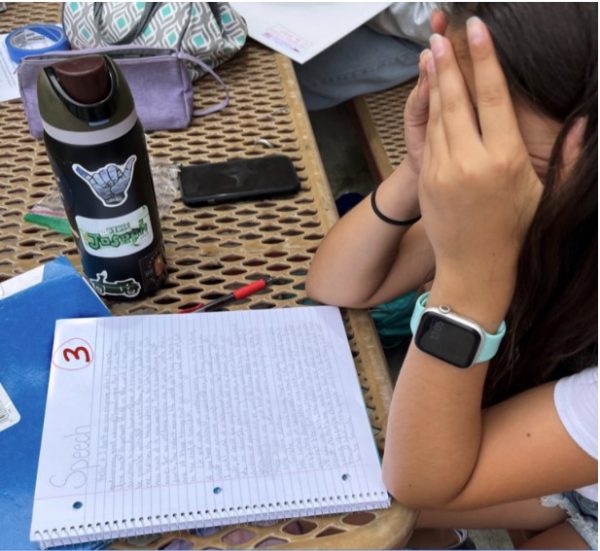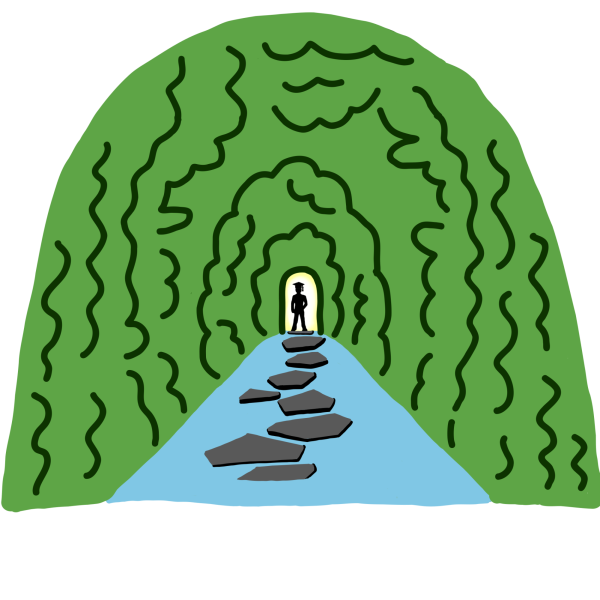Escapism: A Good Solution or a Part of the Problem?
In the age of social media, we are forced to reevaluate our methods for taking breaks and question whether they are causing more harm than good
Students may turn to escapism when faced with external pressures from school.
As high school students in Irvine, dealing with stress and anxiety as a result of academic, athletic or other outside pressures is a common occurrence. While making sure to complete school assignments on time or practicing for an upcoming game is certainly important, taking a break from these stressors is equally important. This is where the concept of escapism comes into play.
According to Merriam Webster, escapism is defined as “habitual diversion of the mind to purely imaginative activity or entertainment as an escape from reality or routine.” Some forms of escapism could include browsing social media, playing video games with a friend or any other activity that brings you pleasure and removes you from your stressors. However, finding the right form and duration of escapism is truly imperative to one’s overall well being and success as a person.
“There is such a fine line between momentarily escaping as a distraction, which can be a positive way of getting yourself through a tough moment, to engaging in escapism which leads to avoidance,” Woodbridge High Mental Health Specialist Megan Humphreys said.
The important thing to understand when it comes to escapism is that completely avoiding stress is not a valid coping mechanism for dealing with negative emotions, and will only serve to make the situation worse in the long run.
Consequently, social media is arguably one of the most popularly used forms of escapism, especially among teens. According to the American Academy of Child & Adolescent Psychiatry, 90% of teens ages 13-17 have used social media at one point.
In a poll conducted on the Golden Arrow Instagram page, about 30% of people shared that social media was their primary mode of escapism. While this may seem like a relatively low percentage, this is simply indicating that social media may not be everyone’s first choice when it comes to escapism. Other students shared that they preferred to read a book, listen to music, or participate in outdoor activities.
However, based on the survey conducted by the American Academy of Child & Adolescent Psychiatry, and the fact that a good portion of followers of the Golden Arrow Instagram use social media as their primary mode of escapism, it is clear that social media still plays a pivotal role in the lives of high schoolers. While this is not a direct cause for concern, the primary issue with social media is that 20 minutes on TikTok or Instagram can quickly turn into multiple hours.
The reason for this is that scrolling through social media is linked to the release of dopamine in the brain, which is our body’s “feel-good” hormone. This indicates to the brain that using social media is good, so it wants us to keep doing it and keep coming back to it. This excess time spent on social media can lead to flat out avoidance of the work that needs to get done, which is what turns a healthy break into a real problem. Social media itself is not the issue, but it’s the amount of hours that high schoolers in particular spend on it that becomes the problem.
Therefore, it is especially important to find alternatives that help relieve stress and give us a momentary break from our issues while also allowing us to get back on task when needed. Junior Isabella Wu responded to the survey conducted on the Golden Arrow Instagram by saying that her go-to method of escapism is listening to music.
“Music, for years now, has been something that has brought me only happiness and comfort no matter the circumstance,” Wu said. In addition, Wu discussed that she has not had much difficulty bringing her focus back to the task at hand, making music a definitively positive form of escapism for her.
Music may not be everyone’s first choice, but the moral of the story is that finding something that you enjoy that won’t contribute to your stress by taking you away from reality for too long is essential.
All in all, escapism itself is not inherently bad. In fact, it is evident that taking periodic breaks from school stress, or otherwise, is extremely beneficial. Escapism only becomes a problem when it inhibits one’s ability to stay on task or complete work and takes us away from dealing with negative emotions for too long. Just like eating unhealthy foods, moderation is key, and escapism is certainly no exception.
Your donation will support the student journalists of Woodbridge High School. Your contribution will allow us to purchase equipment and cover our annual website hosting costs.

Hey Warriors! My name is Ethan Crawford and I feel very honored to serve as a Co-Editor-in-Chief and a staff writer this year. This is my third and last...

Hi Warriors! I'm Lena and I am very excited to be a member of the Golden Arrow as an illustrator! I hope to contribute to our publication through illustrations...









